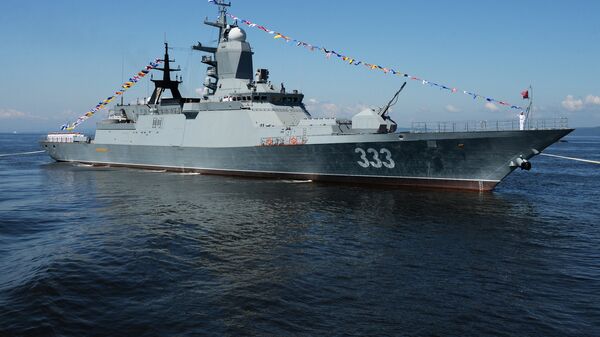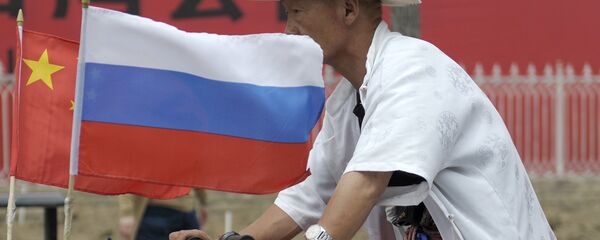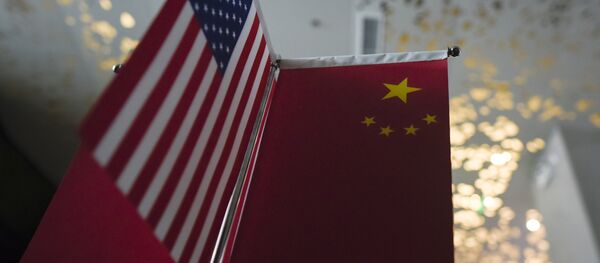The second phase of Joint Sea-2017 officially kicked off on Monday, and will continue until next Tuesday. The coastal phase of the drills will run until Thursday, and involve joint training by Russian and Chinese naval infantry. The second stage, beginning on September 22, will consist of a maritime stage, and will take place in the Sea of Japan and a southern area of the Sea of Okhotsk.
The Russian Navy ships involved in the drills include the Admiral Tributs, a large Udaloy-class destroyer designed for anti-submarine warfare, as well as the Sovershenny, a Steregushchiy-class corvette which NATO designates as a frigate due to its size. It also includes the Igor Belousov rescue vessel, equipped with an AS-40 deep-submersible rescue apparatus, two diesel subs, a Tarantul-class corvette, and several support ships.
Commenting on the drills, Kashin explained that they are significant thanks to their special focus on anti-submarine warfare. According to the observer, this is important because while previous Joint Sea drills paid significant focus on amphibious landing operations, these are absent altogether this time.
China and Russia start 2nd stage of "Joint Sea-2017" military drills, including joint submarine rescue exercises & anti-submarine drills pic.twitter.com/z56FJbN41H
— China Xinhua News (@XHNews) 18 сентября 2017 г.
"The naval infantry units will conduct joint training on the shore. But amphibious landings are not included among the elements of this year's program," Kashin said.
"Instead," the analyst noted, "for the first time, Russian and Chinese submarine rescue vessels equipped with deep-sea rescue vehicles have been included in the joint maneuvers. Russian anti-submarine airplanes, and Russian and Chinese anti-submarine helicopters will also participate in the drills. Two submarines from the Russian Pacific Fleet are involved in the training. It's likely that their role will be to be found and 'rescued' by the Russian-Chinese joint task force."
Separately, of course, the expanded exchange of experience on issues of anti-submarine warfare will also take, "something that is of particular interest to the Chinese side," the analyst noted.
China and Russia start 2nd stage of their "Joint Sea-2017" naval exercises in the Sea of Japan and the Okhotsk Sea https://t.co/jhVADURVvP pic.twitter.com/maxptiwBnJ
— China Xinhua News (@XHNews) 18 сентября 2017 г.
Ultimately, Kashin believes that the growing importance of anti-submarine warfare operations in the programs of joint Russian-Chinese exercises speaks to the growing trust between the two countries in the military sphere, "and the willingness to exchange information on complex issues."
"Russian-Chinese cooperation in this area has not yet gone as far as cooperation between Russia and India; the latter is leasing Russian nuclear submarines. Nevertheless, it can be assumed that the goal of the cooperation between Russia and China is to achieve a similar level of trust and cooperation," the expert concluded.



